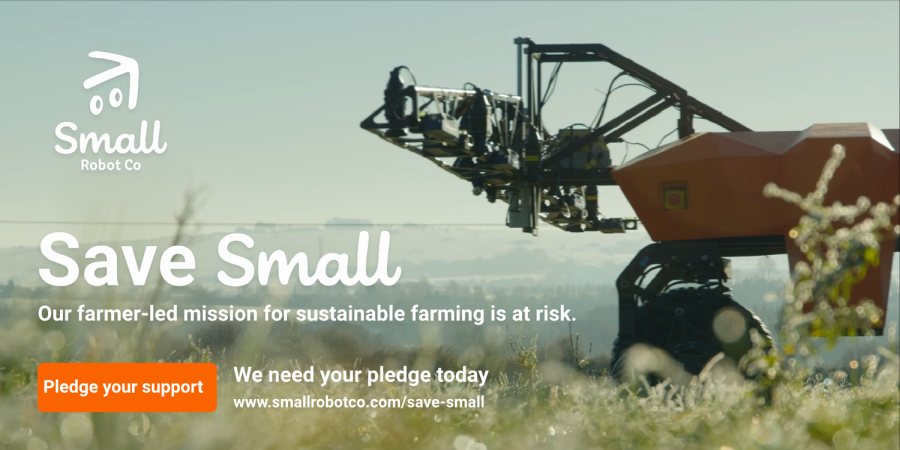
Small Robot Company has announced its lead investor has pulled its funding, leaving the agri-tech firm unable to continue operations.
The company has launched a crowdfunding campaign to continue its mission of developing a series of on-farm robots, named Tom, Dick, Harry and Wilma.
Without new financial support, Small Robot Company warned that it could enter administration at the end of the month.
Following a call with its investor community on Wednesday (3 May) to gauge interest in supporting an equity crowdfund, the firm received more than half a million pounds in investment pledges overnight.
Small Robot Company said this was 'hugely heartening', and is therefore pursuing this option, publicly launching its #SaveSmall pledge campaign today (4 May).
"Without this bridge, it's possible that our farmer-led mission to make farming sustainable is at risk of ending," a spokesman from the company said.
"This would be a huge blow to our farmers, our planet and a UK ag-tech team who have created something remarkable in the last 6 years."
The agri-tech business harnesses the power and precision of robots and artificial intelligence to improve the way that food is produced and minimise chemical usage.
It sets out to make farms more profitable, and increase yield and efficiency, through using small robots instead of tractors.
Its farm bots Tom, Dick, Harry and Wilma will plant, feed and weed arable crops autonomously, with minimal waste.
The Small Robot Company spokesman said this was still a strong investment opportunity for people to get involved in.
"We have recently completed multiple technological milestones which have proved the value and reliability of our hardware and software," he said.
"Service this season has demonstrated up to 90% herbicide and 24% fertiliser savings. We’ve also completed grass weed detection at field scale, which will be ready to go commercially live in September."
Crowdfunding £1.5 million is currently the firm's most viable option, the spokesman said, and lets it find a reasonable outcome for investors, farmers and the company.
"If we can raise more than £3 million then we can start to make real progress again. £4 million plus takes us to escape velocity," he added.
"The alternative is that all investors lose everything and the tech does not benefit farmers or the planet."
